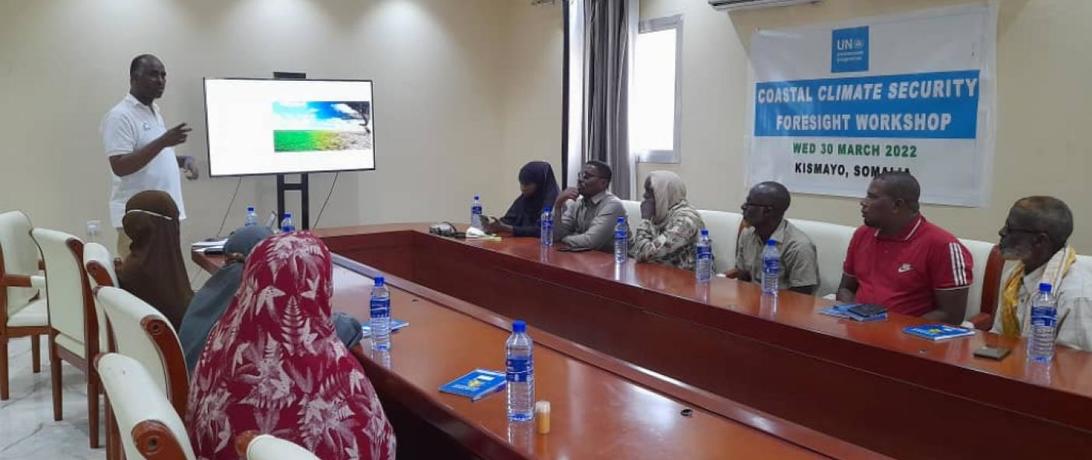Somalia has been identified as the 2nd most climate-vulnerable country in the world according to its exposure to risk, the sensitivity of its population, and limited adaptive capacity. While time and effort have been directed towards understanding climate change risks and security on land, the linkages between the Somali coastal and marine environments, climate change, and security have received negligible attention to date. Secure Fisheries was selected by the United Nations Environment Programme to explore how climate change will impact marine security dynamics in the coming decade.
Four workshops were held in March and April to gain the perspectives of international stakeholders, Somali government officials, and both northern and southern fishing communities. In addition to presentations on the risk climate change poses to security and the complexity of maritime conflict, fruitful discussions arose regarding the need for improved climate education, the dangers of federal government trends, and the ownership over Somali maritime strategy.
Feedback from participants was gathered to help develop narrative scenarios of possible futures for coastal Somalia. This consideration of short-term consequences will facilitate the development of appropriate, effective, and resilient climate adaptation and conflict prevention strategies. Secure Fisheries is grateful to the 46 participants that helped conceptualize impending challenges and their corresponding mitigation strategies.
